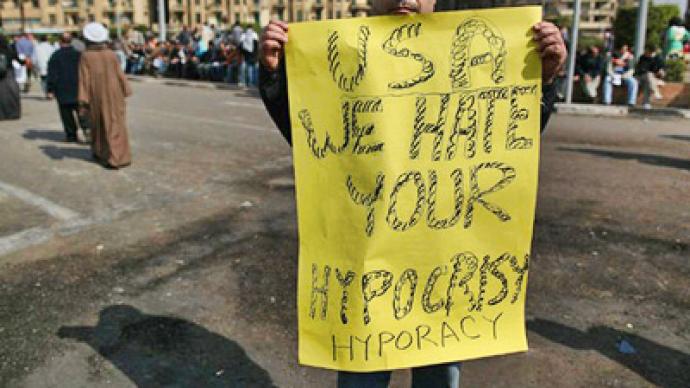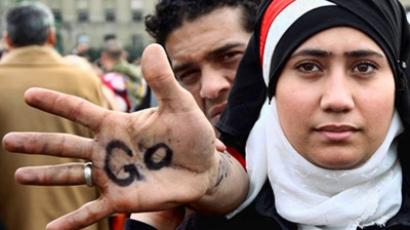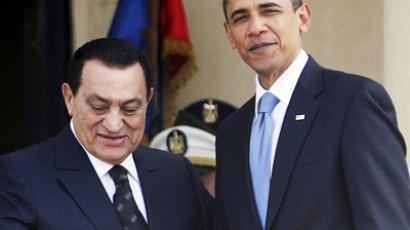“US policy in Arab world shouldn’t change” – ex-security advisor

America is still trying to establish its role in the widespread upheaval in the Arab world. Former US national security advisor, Brent Scowcroft, says that it is too early to predict how US policy in the region will be affected.
“One is always caught off guard by revolutions,” Brent Scowcroft says. “They were a surprise to President Ben Ali and to President Mubarak. It’s hardly unusual they were a surprise to the United States.”“The instabilities in the region are, of course, obvious and had been for a long time. The question is, can they be handled? Can they be dealt with a sensible way, or does it have to involve unrest and violence? And I think we have to wait and see. So far, the Egyptian crisis has been managed quite well, and the Egyptian army has behaved, I think, very well, neither repressing demonstrators, nor encouraging them. So change has come into the region, but that was inevitable as the old leaders pass from the scene. I think we need to be careful, but I’m optimistic,” Scowcroft says.The former US national security advisor says the American policy in the region aims at developing open, progressive societies.“Fundamentally, our policy shouldn’t change, and our policy is the development of open societies, co-operativeness and progressive development for all the countries of the region and that always has been the policy,” Scowcroft says.As for the US policy towards Iraq, Scowcroft says he would be more comfortable if the US presence there were prolonged. “I think, Iraq is in a precarious state. They are still, in fact, forming a government months after an election to do so,” he says. “There are sharp divisions inside the country and it’s hard to say exactly how they will develop. I would be more comfortable with a somewhat longer American presence so that they would be more inclined to solve their problems by discourse rather than strength,” he maintains.Scowcroft also sees America’s role in Afghanistan as different from that of the British Empire in the 19th century and the USSR just 30 years ago. He believes NATO’s mission in Afghanistan is not doomed.“The US is in Afghanistan for a different reason which is not to control Afghanistan, but to make sure that Al-Qaeda and other terrorists don’t use Afghanistan as a base from which to attack us, you, or anybody else. Our goal in Afghanistan is much more limited,” he says.Brent Scowcroft says the struggle against terrorism is going to last a very long time.“Terrorism threat is one thing, a war is another. Terrorism is a technique of combat. You can’t make war on a technique. So I think war on terrorism was designed to motivate the people for a maximum effort. Terror is something that we all have to deal with and we are going to have to for a long period of time. It’s in part a product of the modern age, like television, like radio. People are now politicized by issues that they didn’t care about before, because they didn’t know about them. And I think it is a long-term struggle against extremists who want to destroy a civilization that they can’t cope with,” he concludes.














